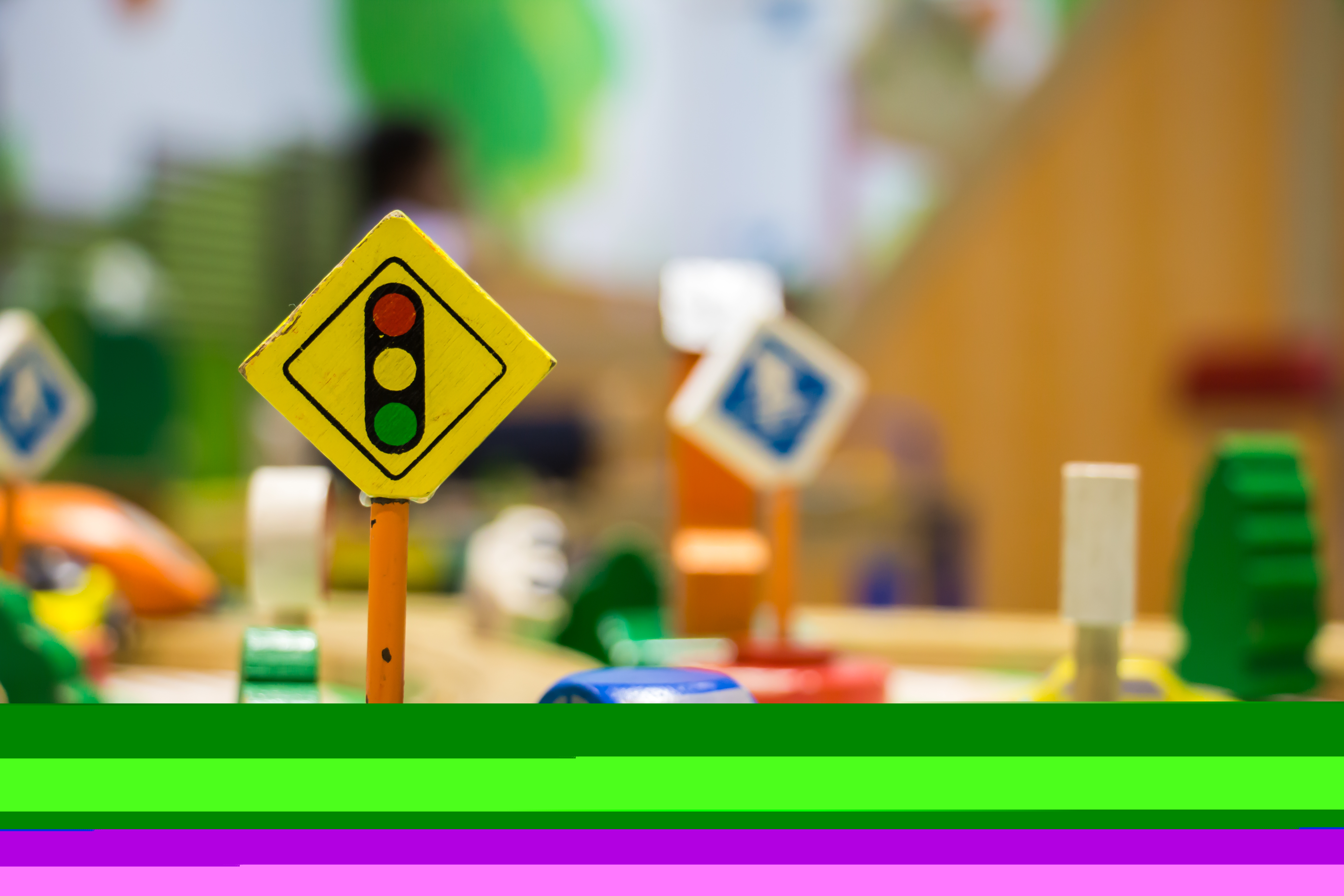Text analysis Reading Worksheets for Ages 6-8
4 filtered results
-
From - To
Our "Text Analysis Reading Worksheets for Ages 6-8" are designed to nurture young readers' critical thinking and comprehension skills. Perfect for elementary-aged kids, these worksheets cover fundamental aspects of text analysis, including identifying the main idea, understanding characters, and recognizing themes. Each worksheet features engaging stories and thought-provoking questions to support emerging readers in decoding and understanding texts more effectively. Aligned with educational standards, our tools foster a love for reading while enhancing literacy skills, making learning both fun and impactful. Equip your children with the skills they need to thrive academically through our expertly crafted text analysis worksheets.
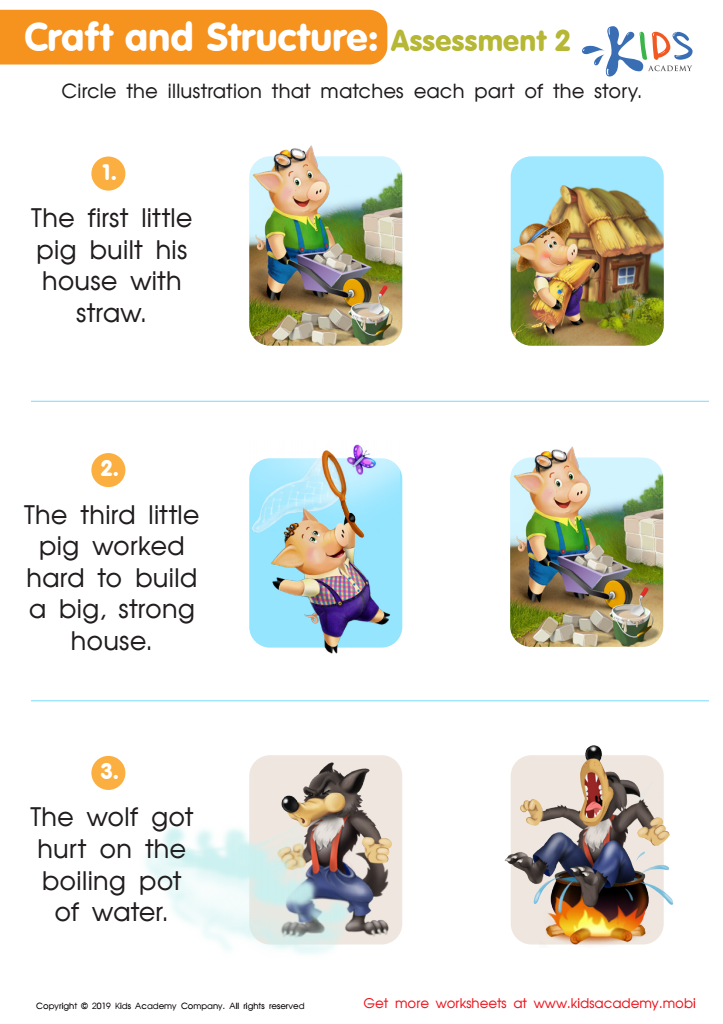

Craft and Structure: Assessment 2 Worksheet 2
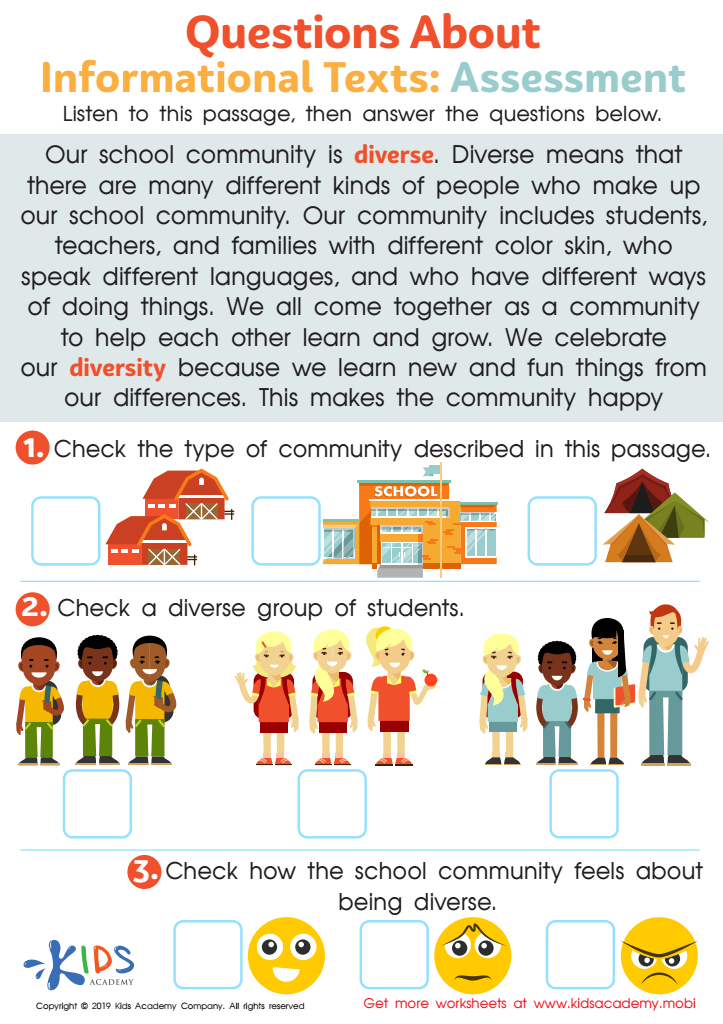

Questions About Informational Texts: Assessment 1 Worksheet
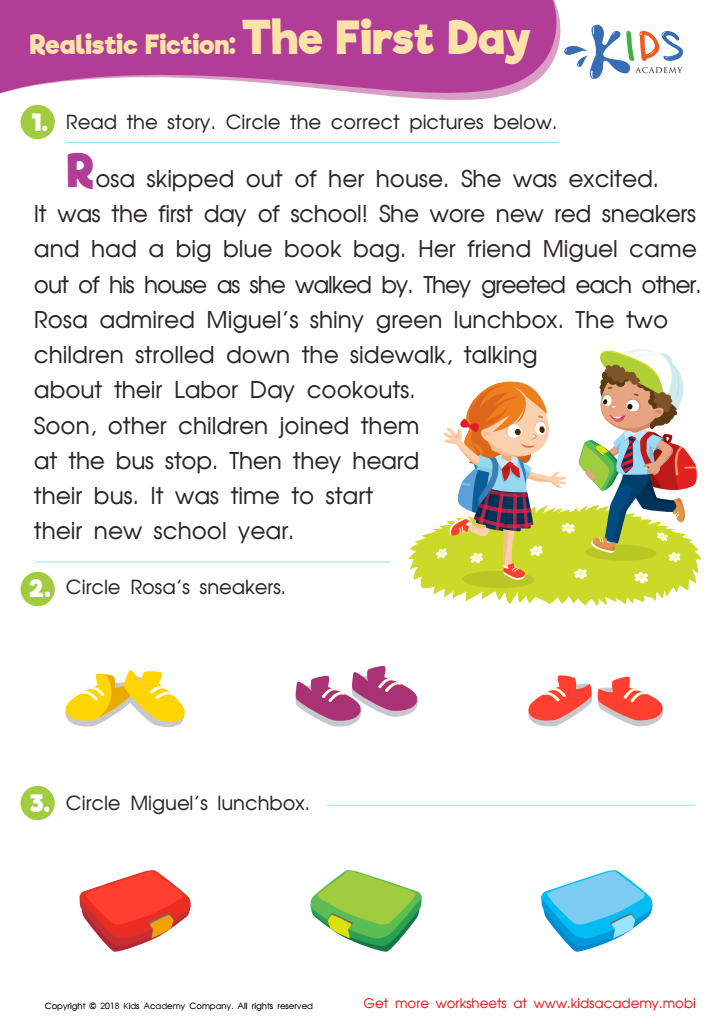

Realistic Fiction: The First Day Worksheet
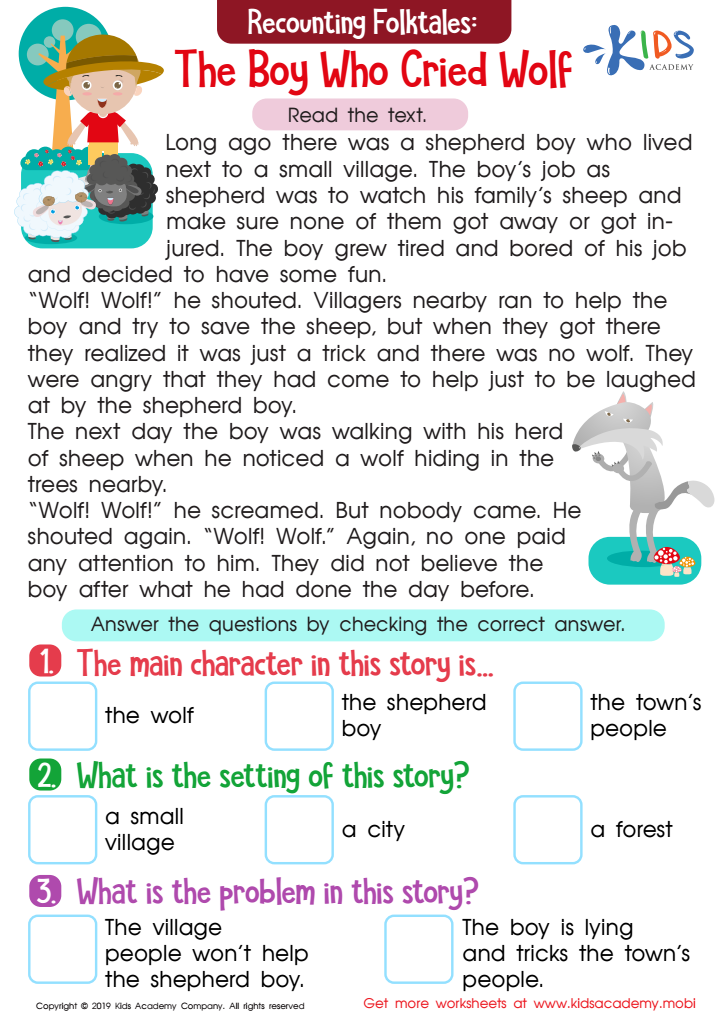

The Boy Who Cried Wolf Part 1 Worksheet
Text analysis reading is critical for children aged 6-8 because it serves as a foundational skill that significantly influences their future educational success and cognitive development. At this age, children transition from learning to read to reading to learn. Proficient text analysis enables them to decode words, grasp meanings, identify key ideas, and make inferences, which are essential for comprehensive understanding and retention of information.
For parents and teachers, fostering strong text analysis skills helps develop children's abilities to think critically and independently. When children interact with texts in a deep, analytical way, they improve their vocabulary, grammar, and overall language skills. These improve their ability to express themselves clearly and accurately in both written and verbal communication.
Furthermore, text analysis enhances problem-solving skills and intellectual engagement. Young learners develop curiosity and a love for reading when they can connect with the material more profoundly. This enthusiasm for reading is fundamental to a lifelong love of learning.
Early investments in text analysis skills also contribute to increased academic achievement. Effective readers can better understand textbooks and instructions across all subjects, leading to a more successful and enjoyable educational experience. Therefore, parents and teachers should prioritize text analysis reading to establish a robust educational foundation for children.

 Assign to My Students
Assign to My Students








